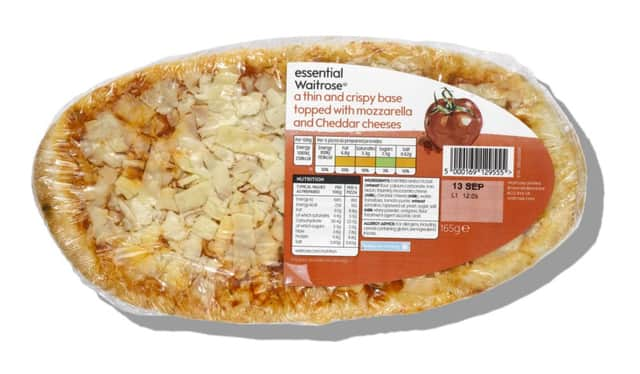Supermarket tricks of trade revealed


The study found that gift sets were often a rip-off – with the products inside costing less if bought separately than as part of the set. They also criticised companies for labelling food products as “light” when they actually contained more sugar than the standard version.
Which? also found that some companies print nutritional labels which, by law, have to give the amount of sugar, salt and fat as a proportion of a typical portion, but the manufacturer actually bases these values on a portion size smaller than most people would eat.
Advertisement
Hide AdAdvertisement
Hide AdWhich? editor Richard Headland said: “We’ve found packaging tactics across the supermarkets that run the risk of misleading customers. Supermarkets and manufacturers need to play fair to avoid confusing consumers.
“We’re campaigning for simple food pricing to make it easy for consumers to compare products and find the best deal.”
Which? interviewed 7,855 of its members about their experience of packaging and also studied hundreds of products on sale in shops and on websites.
CONNECT WITH THE SCOTSMAN
• Subscribe to our daily newsletter (requires registration) and get the latest news, sport and business headlines delivered to your inbox every morning
The consumer watchdog found evidence of chocolates and biscuits that use too much packaging and therefore give the appearance of containing more of a product than they actually do. But it also found that packs of vitamins often do the same – a pack of 60 Asda Multivitamins & Iron tablets were found to be only 25 per cent full, which the company said was due to the label size necessary to print the required information about the product.
A spokeswoman for Asda said: “Whilst we don’t want to introduce too many different bottle sizes, we review everything in our own label vitamin range for tablet size, number of units, retail prices and fill levels. Over the last three years, we’ve removed a lot of excess packaging.”
The investigation uncovered a Lynx gift set costing £6.50, which contained a deodorant that normally costs £3 and shower gel which sells for £2. At the time of the probe, both products were also on offer, making the gift set an even worse deal.
Manufacturer Unilever said that the retailer decides the in-store selling price.
Advertisement
Hide AdAdvertisement
Hide Ad“As a manufacturer, we can only provide recommended retail selling prices. The in-store selling price remains the sole discretion of the individual retailer,” said a spokeswoman.
“As the cost of manufacturing gift packs is significantly higher, we try to ensure that we offer the widest and most appealing selection possible whilst ensuring good value.”
Which? also found several examples of fruit drinks where the main ingredient is missing from the name, such as Innocent Kids Cherry & Strawberry Smoothies which only contain 18 per cent cherries and strawberries, with the main ingredients actually being cheaper fruits.
Innocent said it would be misleading to name the main ingredients due to the flavour of the drinks being predominantly cherry and strawberry.
SCOTSMAN TABLET AND IPHONE APPS